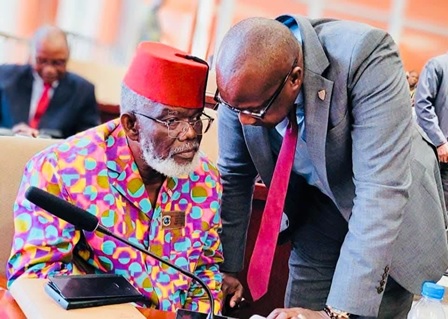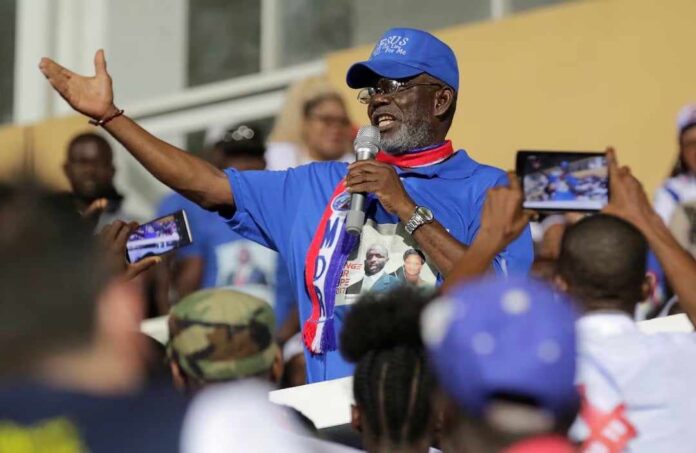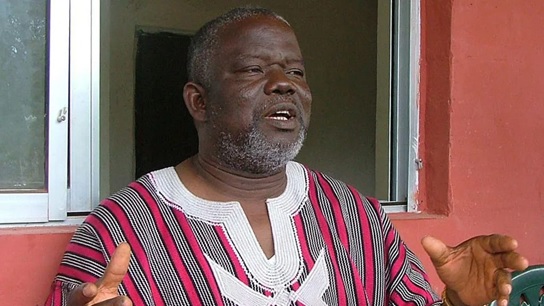MONROVIA – The passing of Senator Prince Y. Johnson has sparked an outpouring of condolences and reflections, both sorrowful and critical, as Liberians process the loss of one of the nation’s most polarizing figures. Johnson, 72, passed away early Thursday morning, November 28, 2024, after reportedly falling into a coma.
Gbarpolu County Senator Amara Konneh expressed deep sorrow over the loss, describing Johnson as a colleague whose absence will leave a significant void. He extended condolences to Johnson’s family, Vice President Jeremiah Koung, and the people of Nimba County.
In an official statement, Nimba County Superintendent Kou Meapeh Gono mourned Johnson as a godfather and hero of Nimba. Reflecting on her recent interactions with him during the dedication of the PYJ Polytechnic auditorium, she praised his commitment to education and spiritual leadership, noting his founding of institutions that nurtured future generations. “His work transcended politics; it was about transformation, upliftment, and hope,” she wrote.
Political commentator Vandalark R. Patricks also weighed in, highlighting the mixed reactions to Johnson’s death and their implications for Liberia’s progress. “Regretfully, some of the people condemning and celebrating his death today are the ones supporting illegality that was meted against certain people in this country, which prompted the likes of PYJ and others to take up arms in defense of their people,” Patricks wrote. He called for a sober reflection on Johnson’s legacy and the nation’s ongoing challenges. “PYJ has passed. To others, he was a bad man. To some, he was a hero. Others believe he was a great clergyman, a father, uncle, and grandpa. Absolutely, no one can take away these facts, because people think differently.”
The late Senator rose to prominence as the leader of the Independent National Patriotic Front of Liberia (INPFL), a rebel faction during the Liberian Civil War. Infamously, he oversaw the 1990 execution of President Samuel K. Doe, an act captured on video and seared into the nation’s memory. Despite his controversial past, Johnson transitioned to a political career, serving as senator for Nimba County and founding several political parties, including the Movement for Democracy and Reconstruction (MDR).
Johnson’s dual role as a warlord and regional advocate made him a divisive figure. For some, he symbolized justice for the oppressed; for others, he epitomized the horrors of war. Political analyst Boakai Jaleiba noted, “For the Nimbaians who witnessed the brutal slaying of children during the Doe years, they see him as a man avenging the loss of their loved ones. For others, his actions are viewed as acts of revenge.”
As tributes continue to pour in, the reactions highlight Liberia’s complex history and the enduring divisions over Johnson’s actions. Messages from political figures like Mo Ali and ordinary citizens like Limas Owen underscore the call for national unity and healing. “Sen. Prince Y. Johnson’s passing has elicited a range of reactions,” wrote Ali. “Nevertheless, it is essential for us to come together as a nation and concentrate on the healing and rebuilding of our beloved country.”
Owen added, “Even in your death, I see mockeries and laughter. It is so crazy to see mortals laughing at another mortal over death. Your standing with God is only determined by God. Hon. Senator, you fought a good fight, and your memories will remain in our body politic.”
As Liberia reflects on Johnson’s legacy, his contributions to education, politics, and his role in Nimba’s development remain undeniable. The void left by his passing will be felt deeply, particularly in Nimba County, where he was both revered and criticized.
While the nation mourns, many are reminded of the need for sober reflection on its past, present, and future. Senator Prince Y. Johnson’s life and death serve as a stark reminder of the complexities that define Liberia’s journey toward healing and unity.







